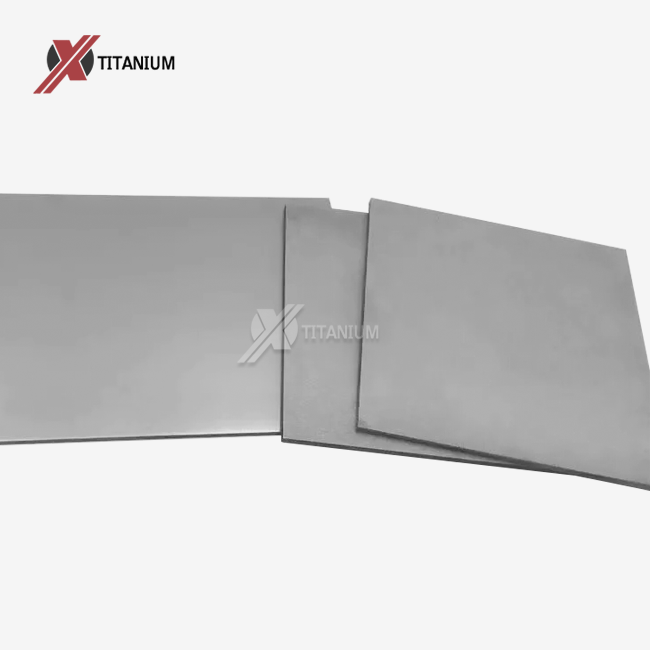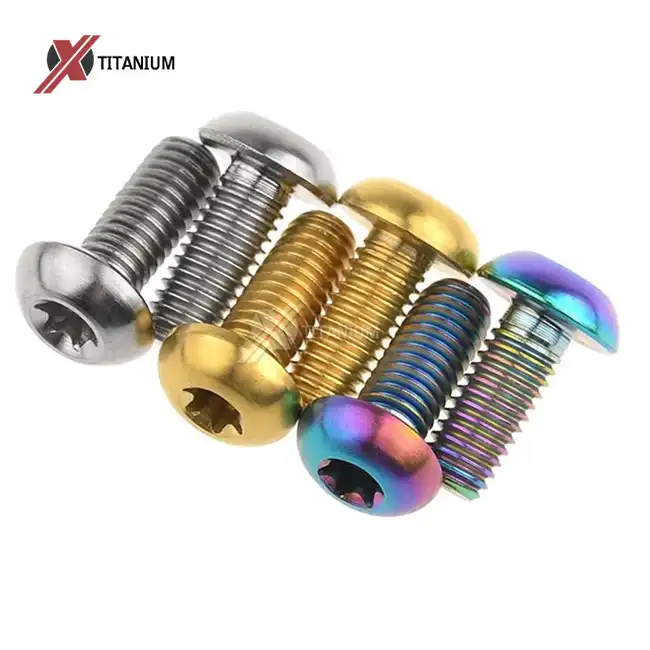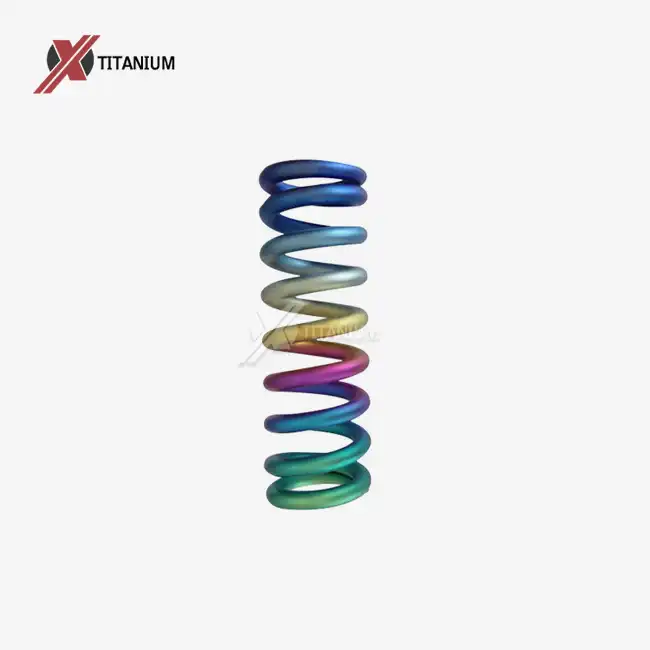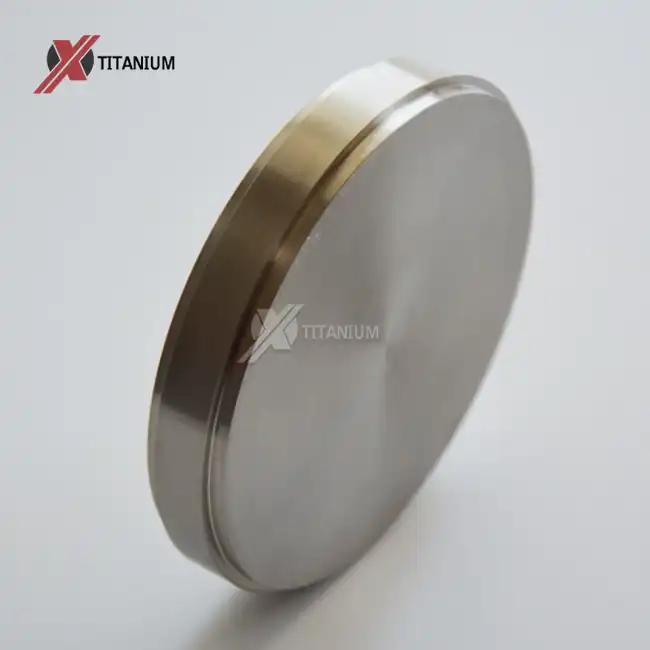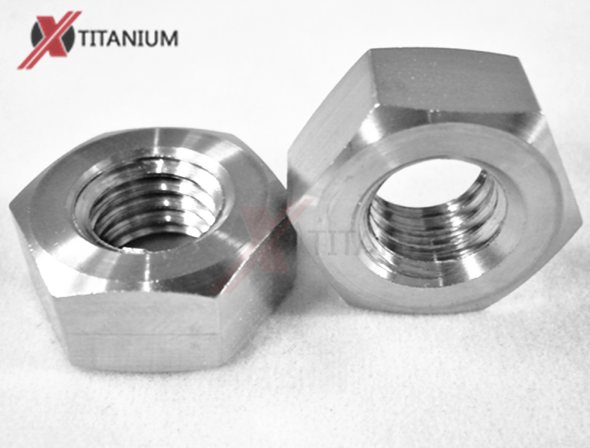The Unique Properties of Grade 2 Titanium Plate
Biocompatibility and Osseointegration
One of the most remarkable features of Grade 2 titanium plate is its exceptional biocompatibility. This material has a natural affinity for human tissue, allowing it to integrate seamlessly with the body without triggering adverse immune responses. The biocompatibility of Grade 2 titanium is attributed to its ability to form a stable oxide layer on its surface, which acts as a protective barrier against corrosion and prevents the release of harmful ions into the surrounding tissues.
Furthermore, Grade 2 titanium plates exhibit excellent osseointegration properties. This means that bone cells can effectively adhere to and grow directly on the titanium surface, forming a strong and durable bond between the implant and the surrounding bone tissue. This unique characteristic is particularly valuable in orthopedic and dental applications, where the success of the implant largely depends on its ability to integrate with the patient's natural bone structure.
Corrosion Resistance and Durability
Grade 2 titanium plate boasts superior corrosion resistance, making it an ideal material for long-term implantation in the human body. The aforementioned oxide layer that forms on the surface of the titanium provides robust protection against the corrosive effects of bodily fluids and tissues. This resistance to corrosion ensures that the implant maintains its structural integrity and functionality over extended periods, reducing the need for revision surgeries and improving patient outcomes.
The durability of Grade 2 titanium plates is further enhanced by their excellent fatigue resistance. These plates can withstand repeated stress cycles without succumbing to fatigue failure, a critical factor in load-bearing implants such as hip replacements or spinal fusion devices. The combination of corrosion resistance and fatigue strength contributes to the long-term success and reliability of medical implants made from Grade 2 titanium.
Strength-to-Weight Ratio and Flexibility
Grade 2 titanium plate offers an optimal balance of strength and lightweight properties, making it particularly suitable for medical implant applications. With a density of approximately 4.51 g/cm³, titanium is significantly lighter than other commonly used implant materials such as stainless steel or cobalt-chromium alloys. This lower density translates to reduced implant weight, which can be beneficial in minimizing stress on surrounding tissues and improving patient comfort.
Despite its lightweight nature, Grade 2 titanium plate maintains impressive strength characteristics. With a tensile strength of around 345 MPa and a yield strength of 275 MPa, these plates can withstand substantial loads and stresses encountered in various medical applications. The material's elasticity, with a modulus of elasticity of about 110 GPa, allows for some degree of flexibility, which can be advantageous in certain implant designs that require a balance between rigidity and compliance with natural tissue movement.
Applications of Grade 2 Titanium Plate in Medical Implants
Orthopedic Implants
Grade 2 titanium plate has found extensive use in orthopedic implants, revolutionizing the field of joint replacement and fracture fixation. In total hip arthroplasty, titanium plates are commonly used as components of the femoral stem and acetabular cup. The material's biocompatibility and osseointegration properties promote strong bonding between the implant and the patient's bone, leading to improved implant stability and longevity.
In spine surgery, Grade 2 titanium plates are utilized in various implants, including interbody fusion cages, pedicle screws, and vertebral body replacements. The material's strength and corrosion resistance make it well-suited for these load-bearing applications, while its radiolucency allows for clearer post-operative imaging. Titanium plates are also widely used in trauma surgery for fracture fixation, where their malleability allows surgeons to contour the plates to match the patient's anatomy accurately.
Dental Implants and Prosthetics
The dental industry has embraced Grade 2 titanium plate for its exceptional properties in implant dentistry. Titanium dental implants have become the gold standard for tooth replacement due to their ability to osseointegrate with the jawbone, providing a stable foundation for prosthetic teeth. The biocompatibility of Grade 2 titanium ensures minimal risk of allergic reactions or rejection, contributing to high success rates in dental implant procedures.
Beyond dental implants, Grade 2 titanium plates are also used in the fabrication of dental prosthetics, such as crowns and bridges. The material's strength and corrosion resistance make it an excellent choice for long-lasting dental restorations. Additionally, the lightweight nature of titanium contributes to patient comfort, especially in cases where multiple teeth need to be replaced.
Cardiovascular Devices
Grade 2 titanium plate has made significant contributions to the field of cardiovascular medicine. Titanium is used in the construction of various implantable cardiac devices, including pacemakers and implantable cardioverter-defibrillators (ICDs). The material's biocompatibility and corrosion resistance are crucial in these applications, as these devices must function reliably in the corrosive environment of the human body for extended periods.
In vascular surgery, Grade 2 titanium plates are utilized in the manufacture of stents and heart valve components. The material's strength and flexibility allow for the creation of stents that can effectively support blood vessels while conforming to their natural shape. Titanium's excellent fatigue resistance is particularly valuable in heart valve applications, where the implant must withstand millions of cycles of opening and closing over its lifetime.
Future Prospects and Innovations
Surface Modifications and Coatings
Ongoing research in the field of biomaterials is exploring various surface modifications and coatings for Grade 2 titanium plates to enhance their performance in medical implant applications. These innovations aim to improve the material's osseointegration properties, reduce the risk of infection, and promote faster healing. Some promising approaches include the development of nanostructured titanium surfaces, which can increase the surface area for bone cell attachment, and the application of bioactive coatings that release growth factors or antibiotics.
Researchers are also investigating the potential of creating antimicrobial titanium surfaces through techniques such as plasma electrolytic oxidation or the incorporation of silver nanoparticles. These advancements could significantly reduce the risk of implant-associated infections, a major concern in the field of medical implants.
3D Printing and Personalized Implants
The advent of 3D printing technology has opened up new possibilities for the use of Grade 2 titanium plate in personalized medical implants. Additive manufacturing techniques allow for the creation of complex, patient-specific implant designs that were previously impossible or impractical to produce using traditional manufacturing methods. This capability is particularly valuable in reconstructive surgery, where custom-made titanium implants can be tailored to match a patient's unique anatomy.
3D-printed titanium implants also offer the potential for optimized porous structures that can enhance osseointegration and reduce implant stiffness, thereby minimizing stress shielding effects. As 3D printing technologies continue to advance, we can expect to see an increase in the use of personalized Grade 2 titanium implants across various medical specialties.
Bioresorbable Titanium Alloys
While Grade 2 titanium plate has proven to be an excellent material for permanent implants, there is growing interest in developing bioresorbable titanium alloys for temporary implant applications. These innovative materials would provide the initial strength and support needed for tissue healing, but gradually degrade and be absorbed by the body over time, eliminating the need for implant removal surgeries.
Research into bioresorbable titanium alloys is still in its early stages, but preliminary results are promising. Scientists are exploring various alloying elements and processing techniques to create titanium-based materials with controlled degradation rates and biocompatibility profiles. If successful, these bioresorbable titanium implants could revolutionize certain areas of orthopedic and maxillofacial surgery, offering new treatment options for patients.
Conclusion
Grade 2 titanium plate has undeniably established itself as the backbone of medical implants, offering a unique combination of properties that make it ideally suited for a wide range of applications. Its biocompatibility, corrosion resistance, and strength-to-weight ratio have revolutionized the field of implantable medical devices, improving patient outcomes and quality of life. As research continues to advance, we can expect to see further innovations in surface modifications, 3D-printed implants, and even bioresorbable titanium alloys, opening up new possibilities for personalized and minimally invasive treatments. The future of medical implants looks bright, with Grade 2 titanium plate leading the way in pushing the boundaries of what's possible in modern healthcare.
Are you interested in exploring the potential of Grade 2 titanium plate for your medical device or implant project? At Baoji Chuanglian New Metal Material Co., Ltd., we specialize in providing high-quality titanium products for various industries, including the medical sector. Our team of experts is ready to assist you in finding the perfect titanium solution for your specific needs. Contact us today at info@cltifastener.com or djy6580@aliyun.com to learn more about our Grade 2 titanium plate offerings and how we can support your innovative medical implant designs.
FAQs
What makes Grade 2 titanium plate ideal for medical implants?
Grade 2 titanium plate is ideal for medical implants due to its excellent biocompatibility, corrosion resistance, and strength-to-weight ratio. It integrates well with human tissue, resists degradation in the body, and provides the necessary strength while remaining lightweight.
How does Grade 2 titanium compare to other implant materials?
Compared to materials like stainless steel or cobalt-chromium alloys, Grade 2 titanium is lighter, more biocompatible, and has superior corrosion resistance. It also has a lower elastic modulus, which can help reduce stress shielding in orthopedic applications.
Are there any limitations to using Grade 2 titanium in medical implants?
While Grade 2 titanium is excellent for many applications, it may not be suitable for all high-load bearing situations. In such cases, stronger titanium alloys like Grade 5 (Ti-6Al-4V) might be preferred. Additionally, titanium implants can cause artifacts in MRI and CT scans, which may complicate post-operative imaging in some cases.
References
1. Oldani, C., & Dominguez, A. (2012). Titanium as a Biomaterial for Implants. In Recent Advances in Arthroplasty. IntechOpen.
2. Elias, C. N., Lima, J. H. C., Valiev, R., & Meyers, M. A. (2008). Biomedical applications of titanium and its alloys. JOM, 60(3), 46-49.
3. Niinomi, M. (2008). Mechanical biocompatibilities of titanium alloys for biomedical applications. Journal of the mechanical behavior of biomedical materials, 1(1), 30-42.
4. Rack, H. J., & Qazi, J. I. (2006). Titanium alloys for biomedical applications. Materials Science and Engineering: C, 26(8), 1269-1277.
5. Liu, X., Chu, P. K., & Ding, C. (2004). Surface modification of titanium, titanium alloys, and related materials for biomedical applications. Materials Science and Engineering: R: Reports, 47(3-4), 49-121.
